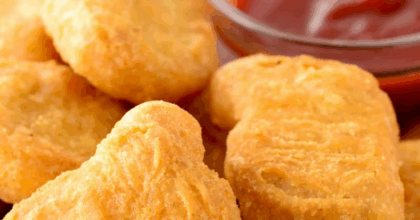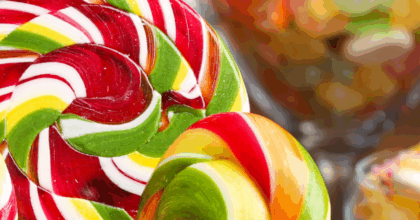Better-for-you movement leads to record-high US bottled water sales in 2015
As Americans look for healthy, better-for-you alternatives to carbonated soft drinks, the US bottled water category is reaching unprecedented heights: new research from Mintel reveals that sales of bottled water increased 6.4 percent to top $15 billion in 2015. Mintel expects sales to continue ascending at a rapid pace through 2020, with projected sales growth of 34.7 percent for the category, including 75.1 percent growth for the sparkling/mineral water/seltzer segment.
Consumer attitudes highlight that innovation in flavor is driving the category’s success, with half (48 percent) of bottled water drinkers saying they are drinking more flavored waters to replace high sugar drinks. Consumption of flavored still bottled water is highest among 18-34 year old consumers (66 percent vs 48 percent of consumers overall), who are also the most likely age demographic to consume any still bottled water (93 percent vs 85 percent of consumers overall).
What’s more, there is a wide range of interest in functional attributes for bottled water. More than two in five (43 percent) consumers are interested in bottled water enhanced with vitamins; another three in 10 agree the ideal bottled water should contain minerals (29 percent) and energy (29 percent). When it comes to calorie counting, consumers show a clear preference for zero calorie bottled water (31 percent) as opposed to less than 100 calorie offerings (13 percent).
One quarter of consumers say their ideal bottled water would be GMO-free (25%) or organic (24%)
In an ideal world, American bottled water drinkers want only the purest of products: two in five (43 percent) consumers say the ideal bottled water would have no artificial sweeteners, artificial flavors (43 percent) or artificial colors (40 percent). Further, one quarter of consumers say their ideal bottled water would be GMO-free (25 percent) or organic (24 percent). The trend in increased demand for organic food and drink options continues as Mintel research indicates 37 percent of consumers feel better about themselves when they buy organic foods and beverages.
“Bottled water brands benefit from the overarching consumer trend toward more healthful, better-for-you alternatives to unnatural and high-sugar drinks. This has spurred sales growth of bottled water with even greater projected growth over the next five years,” said Elizabeth Sisel, Beverage Analyst at Mintel. “In the coming years, consumers will likely put even greater value on no artificial ingredients in bottled water. To capitalize on this trend, brands should emphasize free-from claims on packaging as they release new flavors and functions in order to engage the market’s most active consumers.”
While consumers indicate that the overall top purchasing factor is price (62 percent), the majority of consumers are interested in premium offerings: over half (53 percent) of bottled water drinkers prefer to drink premium bottled waters. What’s more, 39 percent of consumers agree premium bottled water is worth the added cost. However, there is still some educating to be done as over half (51 percent) of consumers are unfamiliar with premium water.
“While price is a major purchasing factor for many consumers, the majority gravitate towards premium water offerings despite its typically higher cost. To attract the more price conscious consumer, brands should look to incorporate product messaging that justifies a higher price point, as well as communicate the health benefits and sophistication of premium products in order to alleviate any confusion,” continued Sisel.
Despite major category growth and widespread interest in premium and functional bottled water offerings, environmental concerns are top of mind for consumers. Two in five (39 percent) bottled water drinkers agree that they are drinking less bottled water because of its environmental impact.
Mintel research also indicates that more than three in four (78 percent) US bottled water drinkers recycle their bottled water packaging. And despite the availability of reusable and biodegradable water bottle packaging, three quarters (75 percent) of consumers wish more bottled water packaging was reusable.
“Bottled water consumers are increasingly concerned with the category’s impact on the environment. Our research reflects growing ethical concerns, which have led to proposed and implemented bottled water bans in various US municipalities. Keeping this in mind, brands could spread awareness of the environmentally friendly measures they are taking to ensure their products are safe for the environment and that their brand upholds ethical business practices,” concluded Sisel.
Press copies of the Bottled Water US 2016 report and interviews with Elizabeth Sisel, Beverage Analyst, are available on request from the press office.
For the latest in consumer and industry news, top trends and market perspectives, stay tuned to Mintel News featuring commentary from Mintel’s team of global category analysts.
-
 Discover your next big breakthroughGet smart fast with our exclusive market research reports, delivering the latest data, innovation, trends and strategic recommendations....View Reports
Discover your next big breakthroughGet smart fast with our exclusive market research reports, delivering the latest data, innovation, trends and strategic recommendations....View Reports -
 2026 Global PredictionsOur Predictions go beyond traditional trend analysis. Download to get the predictive intelligence and strategic framework to shape the future of your industry in 2026 and beyond. ...Download now
2026 Global PredictionsOur Predictions go beyond traditional trend analysis. Download to get the predictive intelligence and strategic framework to shape the future of your industry in 2026 and beyond. ...Download now -
Are you after more tailored solutions to help drive Consumer Demand, Market Expansion or Innovation Strategy?Ask for a customised strategic solution from Mintel Consulting today....Find out more






























